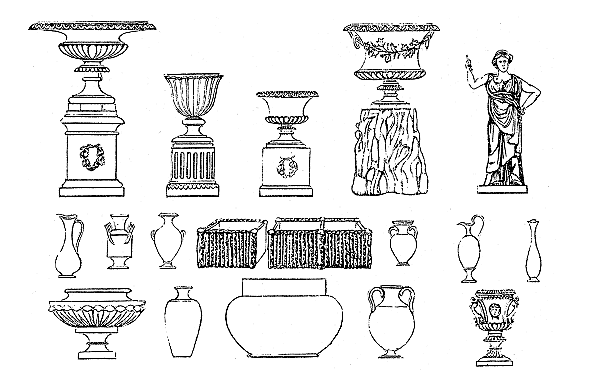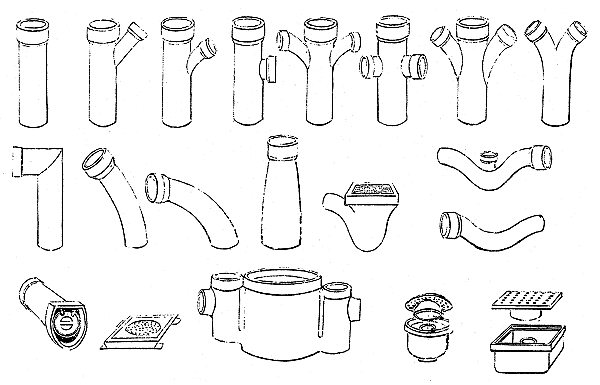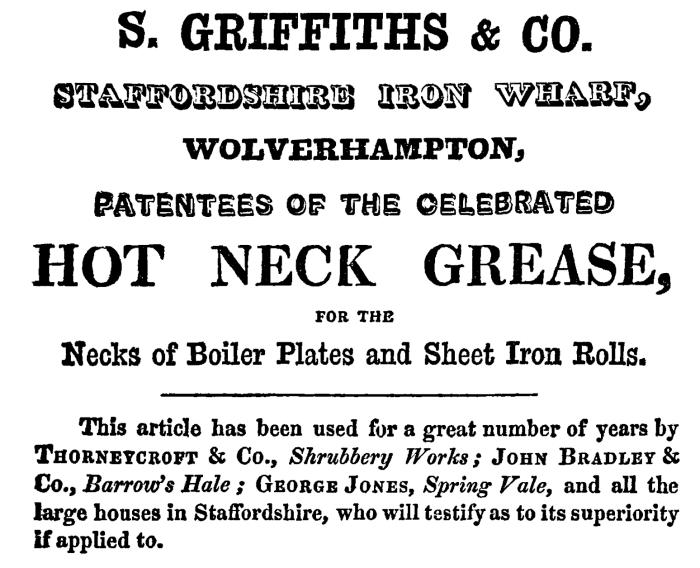|
From the Illustrated Towns of
England Business Review of Wolverhampton, 1897.
John Gough Noake, Builders' Merchant,
Lath Cleaver and Horticultural Sundriesman, 48 and 49
Darlington Street, Salop Street, Albany Road, Horsman
Street, and Waterloo Wharf, Commercial Road.
Telegrams: John Gough Noake, Wolverhampton. Telephone No.
7226.
One of the largest and most important
business concerns in the town of Wolverhampton is that
conducted by Mr. John Gough Noake, builders' merchant, lath
cleaver, horticultural sundriesman etc. This concern was
founded in 1850, and its progress has been of the most solid
and substantial character; a result only commensurate with
the great ability and well-directed enterprise displayed in
its management.
Before enumerating the
many classes of goods and materials dealt in, we will give
some idea of the premises occupied. At 48 and 49 Darlington
Street the premises consist of extensive stores, warehouse
accommodation, showrooms, offices and yard, and the frontage
is both imposing and attractive in appearance. The branch
depots at Salop Street, Albany Road and Horsman Street are
large and convenient for all purposes, and there is an
extensive wharf at Commercial Road with excellent canal communication.
At each address the
premises are admirably arranged, and the greatest order is
observable in the arrangement of the many classes of wares;
consequently, there are the best facilities existing for
inspection, and all orders can be promptly executed. Mr. Noake deals in every description of building materials;
including red, white and blue bricks of all kinds; coping,
cornice and plinth bricks; quarries, tiles, window sills,
pier caps, kiln tiles, statuary and medallions, and
terracotta ware in great variety; fire bricks, burrs, and
quarries, glazed bricks and tiles of all colours, Dutch
tiles, Minton floor tiles, hearth tiles, fender kerbs and
enamelled slate chimney pieces; ranges, grates, etc. Day's,
Duckett's, Oats and Green's, Rimmer's and others waste water
closets; lavatories, pump troughs, baths and flushing
cisterns; Hellyers, Weaver's, Buchan's, Kenon's, Dean's,
Broad's and every speciality in ventilating, intercepting
and grease traps; slates and tiles of all kinds, blue and
red finials, laths, cement, plaster, hair, colours,
varnishes, oils, whiting, dryers, etc. Bituminous inodorous
felt, fibrous plaster, centre flowers and plaster figures;
chimney tops, sheet lead and roofing felts, pallisades and
gates, iron wall coping, barrows, riddles, screens, brick
mats, lock furniture of all kinds, timber of all kinds,
flooring and matched boards, etc., and in fact every
description of materials, tools, etc., required by builders
and others.

Mr. Noake is sole agent for the county of
Stafford for Callender's Pure Bitumen Dampcourse, which is
acknowledged to be unsurpassed for resisting damp, moisture,
water, pressure and temperature. It contains no coal-tar or
pitch. This dampcourse has been used in many important works
in the kingdom and has given the greatest satisfaction.
Prices and samples can be had on application. Mr. Noake is
also agent for Purimachos Fire Cement, which is known and
used in all parts of the world, also a special dentists'
plaster, for which he is well known amongst the principal
dentists of the United Kingdom.
The Horsman Street depot is set apart
for storing horticultural sundries, and here a great variety
of goods may be seen, embracing the following:-
Every description of flower pots,
seakale, orchid, tomato, vine and fern pots; plain and
ornamental orchid pans, seed pans, orchid baskets, saucers,
vases, pedestals, statuary, mignonette and window boxes,
hanging baskets, hanging vases, rustic flower pots, tree
stumps, rustic branch pots, wall pots, garden tiles,
fountains, garden seats, garden and restaurant tables,
garden arches, garden rollers, rhubarb pots, wheelbarrows,
riddles, watering cans, buckets, spades, shovels, forks,
etc.; also wall nails, chrysanthemum and dahlia sticks,
labels, etc.; guano, bone meal, nitrate of soda, sulphate of
ammonia and other fertilizers, agricultural salt,
agricultural pipes, gypsum blocks, spar, tufa, virgin cork,
red ashes, raffia, archangel mats, sphagnum moss, mushroom
spawn, rock plants, herbacious plants, ferns, greenhouse
plants, trees, cuttings, blooms, etc., and all kinds of
horticultural requirements.
Also pigeon nest pans, rabbit
and dog troughs, fowl and pigeon fountains, pigeon feeders,
fowl saucers, etc.; umbrella stands, general glazed
stoneware for all purposes; acid taps, funnels, bottles,
etc.; muffles, retorts, and general stone and fire clay ware
used in acid and chemical works and laboratories. Practical
men are sent out for pruning, vine dressing, and general
garden work to any distance.

For all the goods enumerated Mr. Noake
is intimate with the chief manufacturing centres, and as he
buys direct in large quantities, he is enabled to sell at
lowest possible prices. His trade is very extensive, and
over all details of the business he exercises a close
personal supervision. |

